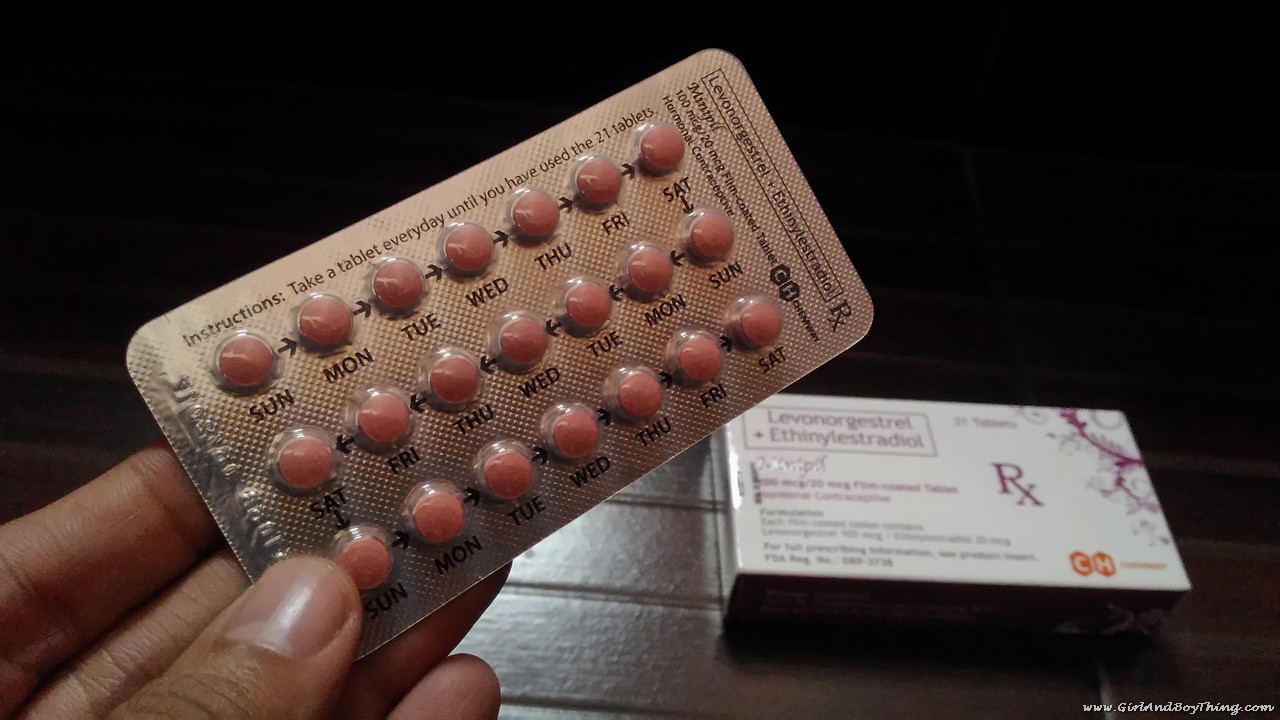The use of contraceptives or contraception has been a controversial topic for debates in the religious, private and public sectors for centuries now. It is said to be part of discussions for responsible parenthood, prevention of sexually transmitted diseases, population control, etc., where the use of different types of contraception are being explored as an option or a must to use.

When you search Google, you will find this meaning:
Contraception is the deliberate use of artificial methods or other techniques to prevent pregnancy as a consequence of sexual intercourse. The major forms of artificial contraception are barrier methods, of which the most common is the condom; the contraceptive pill, which contains synthetic sex hormones that prevent ovulation in the female; intrauterine devices, such as the coil, which prevent the fertilized ovum from implanting in the uterus; and male or female sterilization.
Let’s look on both sides.
The Roman Catholic Church believes that contraception is a deliberate violation of the design God built into the human race. The catholic church clearly says that the use of contraceptives are AGAINST natural law. That conception may happen whenever there’s intercourse and therefore, should not be prevented. The Roman Catholic Church only permitted one form of contraception which is the “Rythym method” where intercourse should take place when a woman is not in ovulation. Others do believe that using contraception or contraceptives terminates life.
On the other hand, private and public sectors are pushing and wanting to provide much wider access for the use of contraception for practical reasons such as empowering women and couples to lead healthier lives, it also prevents unintended and high-risk pregnancies that may lead to abortion and even maternal death. it also promotes maternal and child health, prevention of STD and a whole lot more.

Let me tell you these statistics:
- 10% of Filipina teenagers are now pregnant or mothers, and is one of the highest in Asia(53 births per 1,000 women between the ages of 15 to 19).
- The latest Family Health Survey (FHS) conducted by NSO in 2011 revealed that for every 100,000 live births in the Philippines, 221 mothers die during pregnancy and childbirth or shortly after childbirth. (Source: pcw.gov.ph)
- As of 2013, 32% of recent births to women younger than 20 were unplanned. This proportion was higher in urban areas than in rural areas (36% vs. 27%). (Source: www.guttmacher.org)
- Every minute, a woman dies of complications related to pregnancy and childbirth. This adds up to more than 500,000 women annually and 10 million over a generation. Almost all of these women – 99 per cent – live and die in developing countries. (Source: un.org)
- More than 1 million sexually transmitted infections (STIs) are acquired every day worldwide. (Source: www.who.int)
- Mother-to-child transmission of STIs can result in stillbirth, neonatal death, low-birth-weight and prematurity, sepsis, pneumonia, neonatal conjunctivitis, and congenital deformities. Syphilis in pregnancy leads to approximately 305 000 fetal and neonatal deaths every year and leaves 215 000 infants at increased risk of dying from prematurity, low-birth-weight or congenital disease. (Source: www.who.int)
These are just some of the facts and statistics here in the Philippines and worldwide. There’s more out there. But all of these can be prevented or at least lessen the numbers if we would educate ourselves and know more about reproductive health which includes family-planning information, specifically using of contraceptives.

Speaking of education, let’s educate ourselves with the TRUTHS AND MYTHS about contraception. Just to clear out the fear of using one. (Sources: womenshealthmag.com, familypact.org.)
Myth #1: Your body needs a break from birth control.
TRUTH: The only reason to take a vacation from your contraceptives is if you’re hoping to get pregnant. Other than that, you can stay on your chosen method of birth control for as long as you want.
Myth #2: Being on the Pill for a long time will make it harder to get pregnant later.
TRUTH: It’s possible to get pregnant as soon as you stop taking birth control. It can take up to 6-9 months for all of the hormones in the shot to leave your body before your fertility is restored. That said, it’s still possible to get pregnant during this time, so don’t count on this buffer period for contraception.
Myth #3: Using an IUC (intrauterinecontraceptive) ruins your chancesof having a baby in the future.
TRUTH: When a woman uses an IUC, it does not change her chances of having a baby. Women who use an IUC can get pregnant later just as quickly as women who use other methods. IUCs are safe for women of any age. IUCs work well for women who haven’t had any children yet.
Myth #4: Everyone who uses the birth control shot gains weight.
TRUTH: Most women will not gain weight after they start to use the shot. Some do seem to gain weight. Six months after you start using the shot, your provider may weigh you to see if there has been a change.
Myth #5: It’s OK to keep condoms in my wallet until I need them.
TRUTH: Condoms can get damaged if you keep them in your wallet for too long. They may break when you try to use them. That’s because heat can ruin condoms. Change the condoms in your wallet at least once a month.
Myth #6: The Emergency Contraception (EC) pill is the same thing as an abortion pill.
TRUTH: EC is NOT an abortion pill. The purpose of EC is to stop a pregnancy before it starts. It can be taken up to 5 days after unprotected sex. If a woman is already pregnant when she takes EC, her pregnancy will not end.
My stand? I do respect the beliefs of the Roman Catholic church, but the “Rythym Method” will not be the best option for me and my soon to be husband if we plan on having a child after marriage. Of course, we want proper spacing for our kids. Another case, I’ve been diagnosed with PCOS or Polycystic Ovary Syndrome on both ovaries, and timing ovulation is kinda difficult to determine. So If we do make love, there’s a big chance that I might get pregnant because I wouldn’t know if I’m ovulating or not. Chances of unplanned pregnancy is very high in my case. For me, using a contraceptive(Pills) will help regularize my menses. It is a treatment for my PCOS.
There are a lot of contracetives in the market right now to cater every type of women. But the most accessible to buy and use is the the oral contraceptive or popularyly known as “pills”. And the following brands understands every women’s needs(ask your doctor first before using any of these pills)
- Minipil(Levonorgestrel 100mcg + Ethinlestradiol 20mcg)– It is the lowest available dose in the market as of today but low dose does NOT mean reduced efficacy. It will just reduce the side effects, especially for first timers.
- Cybelle (Cyproterone Acetate 2mg + Ethinlestradiol 35mcg)– Aside from being a contraceptive, this pill is good for patients with severe acne. There are other pill counterparts in the market but they are actually pricey. But with Cybelle, you’ll get the same result but cheaper the price.
- Liza (Drospirenone 3mg + Ethinlestradiol 30mcg)- Lizelle (Drospirenone 3mg + Ethinlestradiol 20mcg) – Suffering from PMS? or Dysmenorrhea? Maybe pills like Liza and Lizelle can help you get relieved. But it is best to check on your ObGyn as Liza and Lizelle have different doses and number of pills; one of them should be the ideal brand for you.
As I said earlier, every woman has different reproductive needs. That is why the pill brands mentioned above came up with a campaign #KnowMoreLiveMore to give women the right information which can help a woman live and enjoy her life to the fullest without regrets.















Leave a Reply